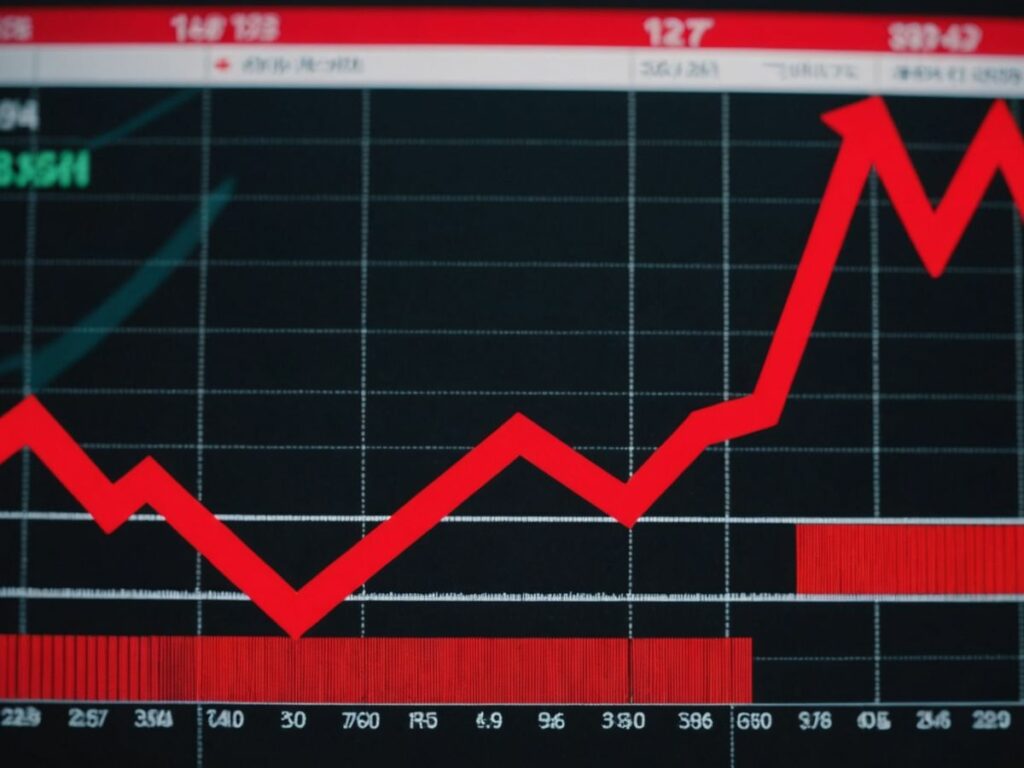Japanese stocks experienced a significant drop on Friday, with the Nikkei 225 falling by nearly 6%, marking its biggest daily decline since the start of the pandemic. The plunge was driven by concerns over the US economy and anticipated interest rate hikes by the Bank of Japan (BOJ).
Key Takeaways
- Nikkei 225 Drop: The Nikkei 225 index fell by 5.8%, closing at its lowest level since January.
- Topix Index: The broader Topix index saw a larger loss of 6.14%, marking its worst day in eight years.
- Global Impact: The decline in Japanese stocks followed a global stock market rout, with significant drops in European and US markets.
- Interest Rate Hikes: The BOJ raised interest rates by 15 basis points to 0.25%, with more hikes expected later this year.
- Yen Strengthening: The Japanese yen strengthened against the US dollar, impacting the profits of Japanese exporters.
Market Reactions
The Nikkei 225 ended 5.8% lower, its biggest daily drop since March 2020. The broader Topix index saw a larger loss of 6.14%, marking its worst day in eight years. The largest loser on the Nikkei was Daiwa Securities, which saw an 18.85% wipeout of its market cap. Other heavyweight stocks that fell include Softbank Group, which tumbled over 8%, and trading houses Mitsui and Marubeni, which saw losses of over 10% and 8%, respectively.
Global Stock Market Impact
The decline in Japanese stocks extended a global stock rout that began following the release of weak US economic data. European markets also opened lower on Friday, with the benchmark Stoxx Europe 600 index down 1.4%. Germany’s DAX and France’s CAC 40 were down 1.2% and 0.6%, respectively. London’s bank-heavy FTSE 100 was 0.4% lower. US futures indicated another weak open for Wall Street, with S&P 500 futures down 0.9%.
Interest Rate Hikes and Yen Strengthening
On Wednesday, the BOJ raised interest rates by 15 basis points to 0.25% in its second hike this year and announced plans to taper its bond buying. Traders expect more rate hikes to come later this year as the central bank tries to contain inflation. The hike has narrowed the difference in interest rates between the United States and Japan, pushing the Japanese yen higher against the greenback. The dollar has fallen by more than 4% against the Japanese currency since the middle of last month.
Broader Asian Market Reactions
Elsewhere in Asia, markets tumbled across the board on Friday. South Korea’s Kospi declined 3.7%, Australia’s S&P/ASX 200 dropped 2.1%, Hong Kong’s Hang Seng Index lost 2.1%, and China’s Shanghai Composite was down 0.9%. The gloomy sentiment in Asian markets comes after a sell-off on Wall Street in Thursday’s trading session, which saw all three major US indexes plunge on recession fears.
Economic Data and Future Outlook
New economic data revealed that first-time applications for jobless benefits in the US rose last week to an estimated 249,000 filings, the highest tally since last August. Continuing claims, filed by people who have received unemployment benefits for at least a week, jumped to 1.877 million, the highest level since November 2021. The Federal Reserve signaled at its policy meeting on Wednesday that a long-awaited rate cut is on the table for September.
Despite the current downturn, analysts remain positive about Japanese stocks in the long run, as inflation is gaining traction and a positive “wage-price spiral” is strengthening in the economy. The hope is that rising wages and prices can help the country shake off years of economic weakness.

